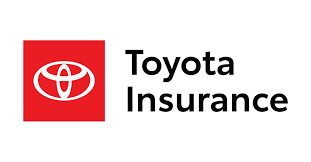Toyota Insurance offers various coverage options to address the unique needs of multiple individuals when protecting your vehicle. Whether you’re looking for essential liability protection or a comprehensive package, understanding what is covered—and what isn’t—is important. This ensures that your Toyota is fully protected on the road. The following is a detailed post about what’s included and what’s not.
What’s Included in Toyota Insurance?
Before we look at the specifics, we must know the protection that Toyota Insurance provides. Each policy is designed to help you manage the financial burden of vehicle damage, theft, and third-party liabilities. Here’s a breakdown of the essential coverages:
1. Comprehensive Coverage
Comprehensive insurance protects your Toyota from various incidents, including natural disasters and accidents. This policy includes coverage for fires, floods, and theft.
While comprehensive coverage offers extensive protection, it’s important to note that specific perils may still be excluded based on the policy terms.
For example, in the event of a severe storm that causes damage to your vehicle, comprehensive coverage ensures that repair or replacement costs are taken care of. This peace of mind can be invaluable, especially in uncertain weather conditions or areas prone to natural disasters.
2. Third-Party Liability Coverage
Third party car insurance is a mandatory requirement in many countries, and Toyota Insurance includes this coverage to protect you from any legal liability.
If you are involved in an accident and cause damage to another vehicle or injury to another person, this coverage takes care of the associated costs.
This type of insurance is crucial because it protects you from potentially high legal claims and compensation costs.
It’s important to understand that third-party car insurance does not cover damage to your vehicle; its primary function is to protect others from the financial repercussions of accidents involving your car.
3. Personal Accident Cover
Accidents can happen anytime, and not just the vehicle might be affected. Toyota Insurance typically includes personal accident cover for the driver, ensuring that medical expenses and compensation are provided in case of injury or death.
Depending on the policy and add-ons chosen, this coverage can also be extended to passengers, but this often requires specific add-on policies and may only be included in some standard plans.
4. Add-On Coverage
If you’re looking for additional protection, Toyota Insurance offers a range of add-ons to include in your policy. Some of the most popular add-ons include:
- Zero Depreciation Cover: Ensures total compensation without considering the depreciation of parts.
- Engine Protection Cover: This covers engine damage due to flooding or oil leakage, which is more pertinent in certain geographical areas prone to such weather conditions.
- 24×7 Roadside Assistance: Helps in emergencies such as flat tyres, dead batteries, or towing services.
Add-ons like these provide extra security and can help reduce out-of-pocket expenses in the long run.
What’s Not Included in Toyota Insurance?
While Toyota Insurance provides robust protection, it’s equally important to understand what’s not covered. Knowing the exclusions helps make informed decisions and avoid unexpected costs.
1. Drunk Driving and Invalid Licence
One of the most critical exclusions in Toyota Insurance is driving under the influence. No claim will be entertained if the driver is intoxicated or lacks a valid driver’s licence at the time of an accident. Driving responsibly for safety and ensuring your insurance remains valid is essential. This exclusion applies regardless of the insurance provider.
2. Wear and Tear
Every car experiences wear and tear over time. Unfortunately, no Toyota Insurance plan covers regular maintenance issues such as tyre wear, brake pad replacements, or engine degradation. These are considered standard parts of vehicle ownership and must be addressed out of pocket. This exclusion also applies to damage resulting from lack of maintenance, which can be a common misconception.
3. Mechanical or Electrical Failure
Any damages incurred will not be covered if your private Toyota vehicle is used for commercial purposes. For example, using your car as a taxi or delivery vehicle without proper commercial insurance will void your Toyota Insurance claim. Drivers should obtain commercial vehicle insurance if they intend to use their vehicle for business purposes, which is critical for legal and coverage reasons.
2. Commercial Use of a Private Vehicle
Any damages incurred will not be covered if your private Toyota vehicle is used for commercial purposes. For example, using your car as a taxi or delivery vehicle without proper commercial insurance will void your Toyota Insurance claim. Always ensure the car is used per the policy’s intended purpose.
Choosing the Right Coverage
Selecting the right Toyota Insurance plan depends on your specific needs. If you drive frequently in busy areas, comprehensive coverage with add-ons such as zero depreciation and roadside assistance might be more beneficial.
On the other hand, if you rarely use your car, basic third party car insurance may suffice. Always compare different policies and assess the risks associated with your driving habits and location.
Additionally, consumers should consider consulting with an insurance agent or broker for tailored advice based on their circumstances.
Conclusion
The right Toyota Insurance protects your vehicle and yourself from unexpected financial burdens. With options ranging from comprehensive coverage to third party car insurance, it’s easy to tailor a plan that meets your needs.
Remember to pay attention to the exclusions to avoid surprises during a claim. Whether you opt for essential liability protection or a more detailed comprehensive plan, choosing the right coverage gives you peace of mind while driving.
*Standard T&C Apply
Insurance is the subject matter of solicitation. For more details on benefits, exclusions, limitations, terms, and conditions, please read the sales brochure/policy wording carefully before concluding a sale.
Vehicle specifications, features, and pricing may vary, and it is essential for readers to verify the latest information from authorised dealerships, manufacturers, or reliable sources before making any purchasing decisions.
Claims are subject to terms and conditions set forth under the motor insurance policy.



